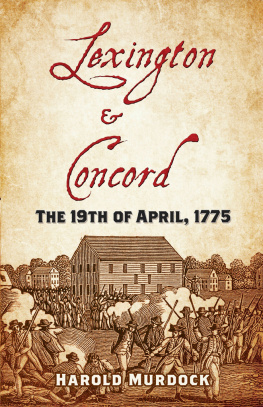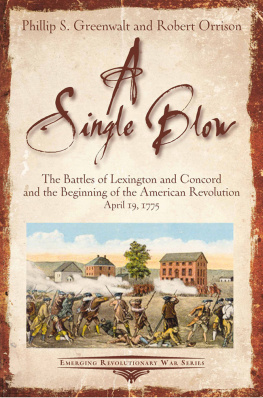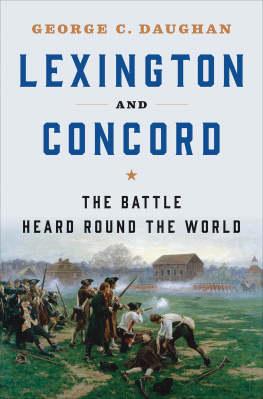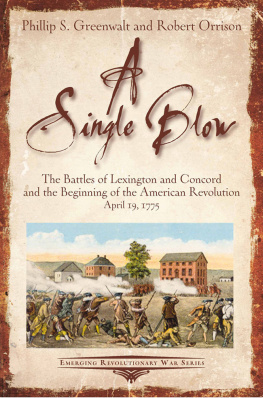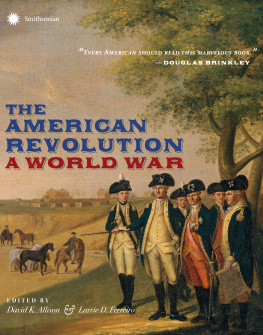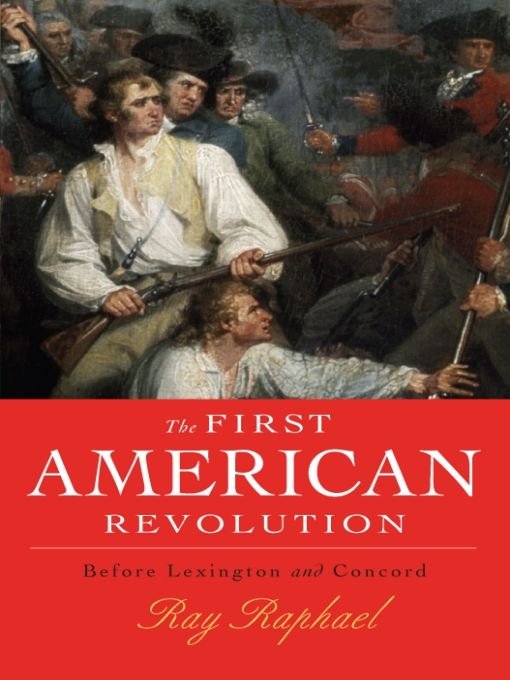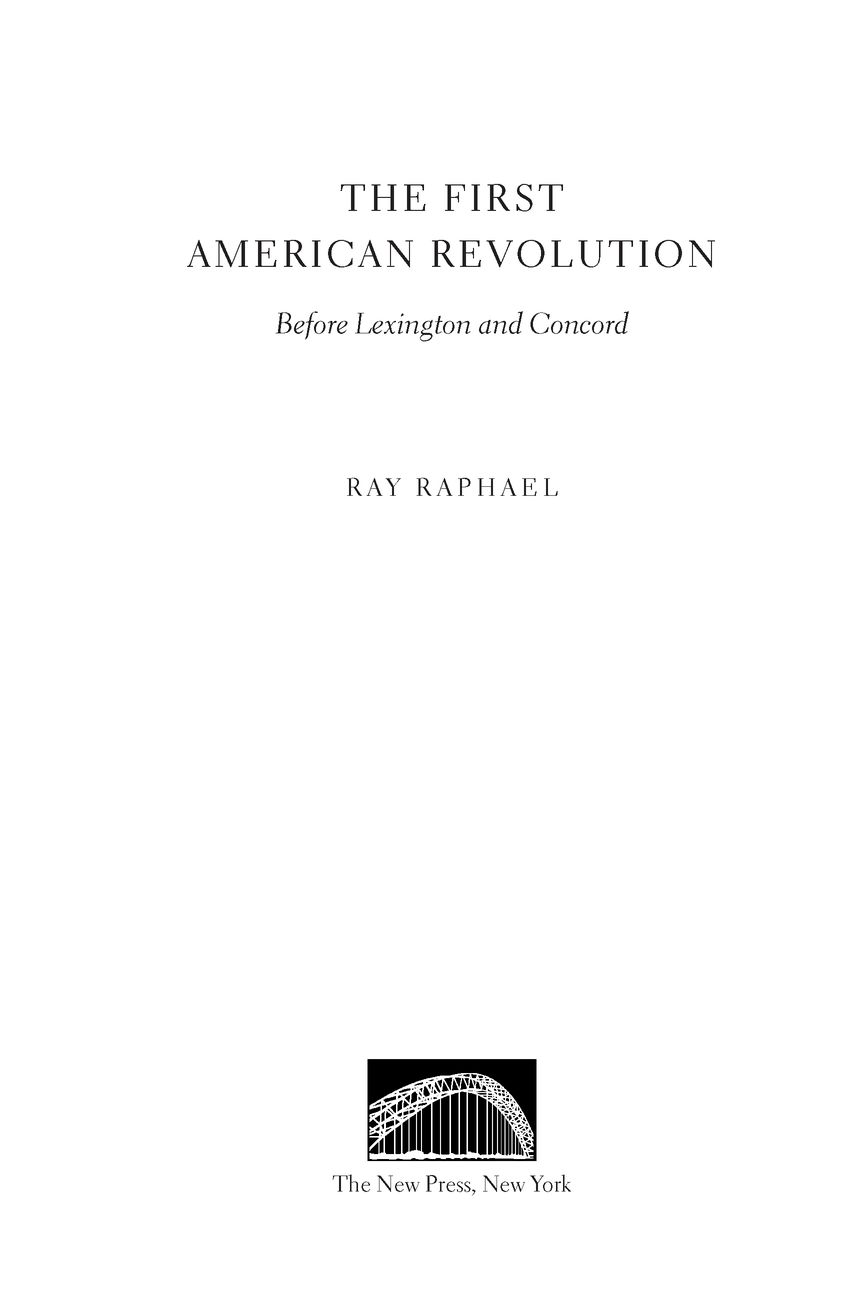Table of Contents
For Bill and Sharon, who know well that stories tell our lives. And, as always, for Marie.
ACKNOWLEDGMENTS
The preliminary research for this book was made possible through a fellowship from the National Endowment for the Humanities. The inspiration to tell this story came from my former teacher and good friend, Sheldon Wolin. I received excellent readings and many helpful suggestions from Holly V. Izard, Kenneth J. Moynihan, Marc Favreau, Cathy Dexter, and my wife, Marie Raphael. Holly Izard, Ken Moynihan, and Stephen Meunier filled many gaps in my knowledge of local Massachusetts history. The project would not have been possible without assistance from Julia Graham and Gloria Fulton of the Humboldt State University Interlibrary Loan Department, and from their counterparts in other libraries. I also wish to thank the many people who, through the years, have preserved valuable materials at the American Antiquarian Society in Worcester, the Worcester Historical Museum, the Forbes Library in Northampton, the Richard Salter Storrs Library in Longmeadow, the Massachusetts Historical Society, the New England Historic Genealogical Society, the Harvard Map Collection, the Connecticut Valley Historical Museum, and the New York Public Library.
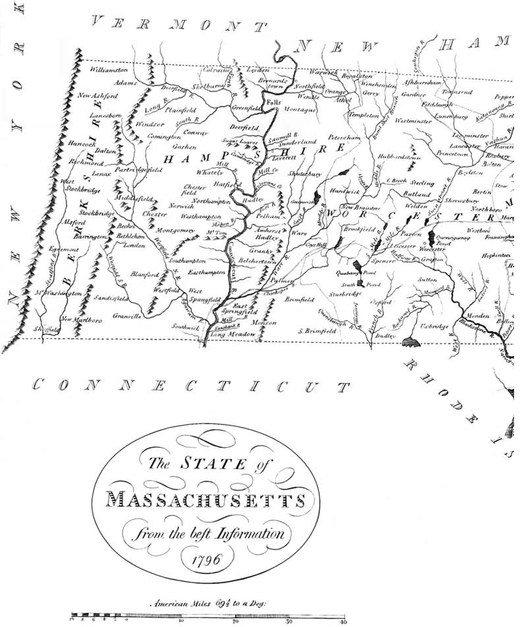
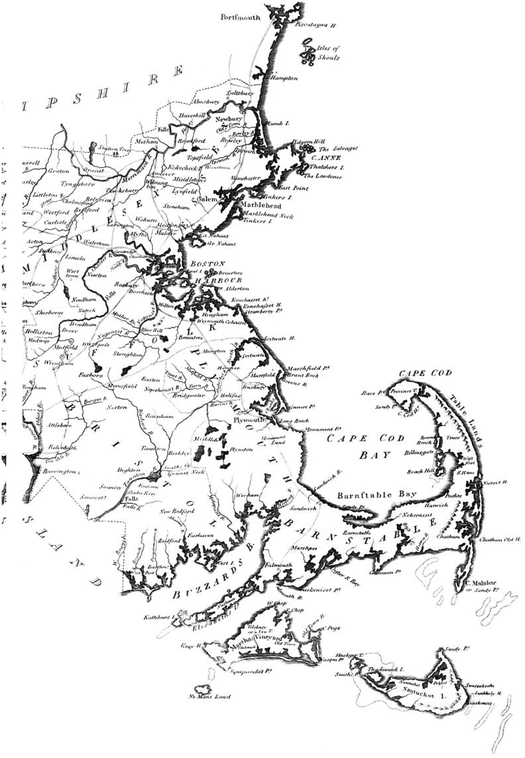
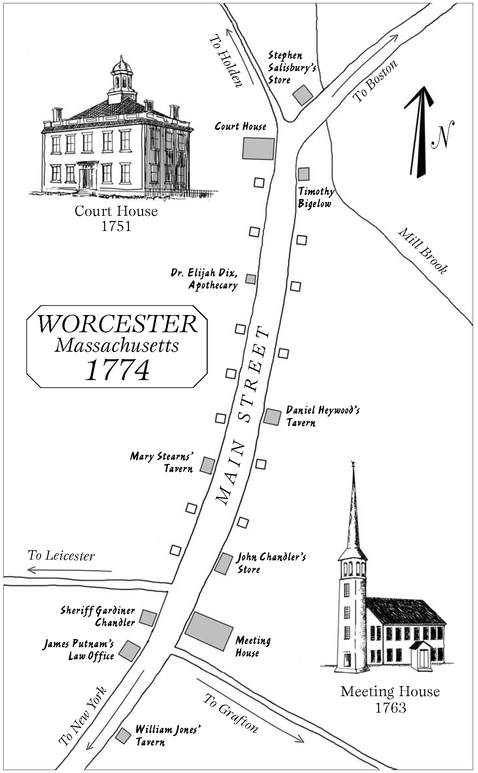
INTRODUCTION
The American Revolution did not start with the shot heard round the world on the morning of April 19, 1775. When British Regulars fired upon a small group of hastily assembled patriots on the Lexington Green, they were attempting to regain control of a colony they had already lost. The real revolution, the transfer of political authority to the American patriots, occurred the previous summer when thousands upon thousands of farmers and artisans seized power from every Crown-appointed official in Massachusetts outside of Boston.
Starting in August 1774, each time a court was slated to meet under British authority in some Massachusetts town, great numbers of angry citizens made sure it did not. At Great Barrington, fifteen hundred patriots filled the courthouse to prevent the judges from entering. At Worcester, judges were made to read their recantations thirty times over, hats in hand, as they passed through 4,622 militiamen lined up along Main Street. So, too, at Springfield, where, in a sandy, sultry place, exposed to the sun, once-important officials sweated under the burden of their heavy black suits. The functionaries of British rule cowered and collapsed, no match for the collective force of patriotic farmers. According to an eyewitness,
The people of each town being drawn into separate companies marched with staves & musick. The trumpets sounding, drums beating, fifes playing and Colours flying, struck the passions of the soul into a proper tone, and inspired martial courage into each.
The governors councilors, once elected but now appointed directly by the Crown, were also forced to resign. Thomas Oliver, lieutenant-governor of Massachusetts and a councilor as well, ceded to a crowd of four thousand assembled around his home in Cambridge. Timothy Paine of Worcester was visited by two thousand men who demanded his resignation. He told a committee he would comply, but his word would not sufficethe people wanted it in writing. Even that was not enough: the crowd demanded he come out of his house while a representative read his resignation aloud. Again Paine complied, and again the people wanted more: he would have to read his resignation himself, with his hat off, several times as he passed through the ranks. Nothing else would do.
Through it all, the revolutionaries engaged in a participatory democracy which far outreached the intentions of the so-called Founding Fathers. They gathered under no special leaders. Their ad hoc representatives, such as the five men elected to talk with Timothy Paine, operated according to instructions approved by the assembled crowd and reported back immediately to the body as a whole. Even the nighttime mobs (and there were many) maintained a democratic aspect. In Braintree, two hundred men gathered on a Sunday at around 8:00 P.M. to remove some gunpowder from the powder house and to make the local sheriff burn two warrants he was attempting to deliver. Successful in their missions, they wanted to celebrate with a loud huzzah. But should they disturb the Sabbath? They calld a vote, wrote Abigail Adams, who observed the affair, and it being Sunday evening it passed in the negative.
By early October 1774, more than six months before the red dawn at Lexington, all Crown-appointed officials had been forced to disavow British authority or flee to Boston, which was still under military protection. The Flames of Sedition, wrote Governor Thomas Gage, had spread universally throughout the Country beyond Conception. The British had lost all control of the Massachusetts countryside, and they would never get it back.
Scholars differ widely on how to define revolution, but a good starting point, firmly-rooted in common usage, can be found in the Random House Websters College Dictionary (1997): a complete and forcible overthrow and replacement of an established government or political system by the people governed. In the late summer and early fall of 1774, the people of rural Massachusetts completely and forcibly overthrew the established government and began to set up their own. This was the first American Revolution. While a group of renowned lawyers, merchants, and slave-owning planters were meeting as a Continental Congress in Philadelphia to consider whether or not they should challenge British rule, the plain farmers and artisans of Massachusetts, guarding their liberties jealously and voting at every turn, wrested control from the most powerful empire on earth.
PART 1
BEFORE THE REVOLUTION
PEOPLE AND PLACE
On the eve of the Revolutionary War, 95 percent of the inhabitants of Massachusetts lived outside Boston. Few of these people were involved in the Stamp Act protests, the Boston Massacre, or the Boston Tea Partythe signature events which define the prerevolutionary decade in the historical consciousness of most Americans. Some might have paid some attention to the growing rift between the British imperial government and the American Whigs, but for the most part they focused on personal and parochial concerns. For instance:
Through the 1760s citizens of Worcester complained repeatedly about the law requiring them to support the Latin grammar school, which served college-bound sons of the elite. Education, they argued, should be open to all, and children should be taught in plain English.
In 1766 Springfield tanner Jedediah Bliss, to protest singing in church, read aloud from the Bible when the rest of the congregation broke into their hymn.
In 1768 farmers from the town of Deerfield mowed a thirtyacre meadow that was also claimed by the neighboring district of Greenfield; when men from both locales tried to cart off the hay, they wound up brawling with clubs and pitchforks.


